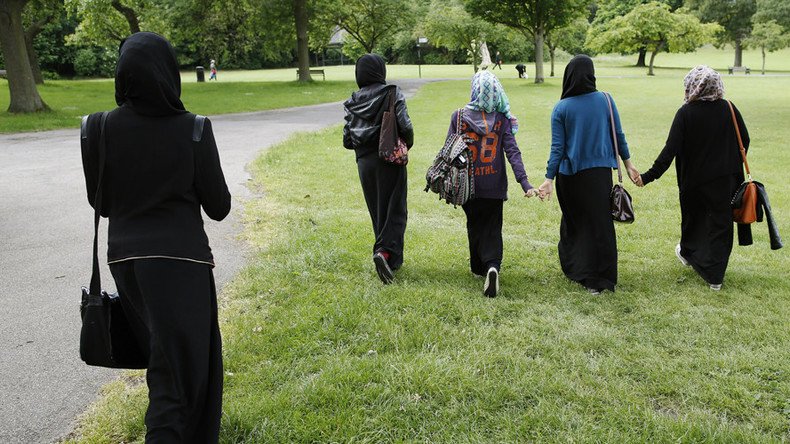‘Legitimizing discrimination against Muslim women’: ECJ headscarf ruling lambasted online

A decision by the European Court of Justice (ECJ) paving the way for a workplace ban on headscarves has been met with outrage online. The ruling has left many confused, with some wondering if poppies and turbans will also be outlawed.
READ MORE: Employers can ban wearing of visible religious symbols – top EU court
Amnesty International described as “disappointing” the ECJ’s ruling that allows for a ban on staff wearing visible religious symbols at work. In a tweet the organization said it gives “greater leeway to employers to discriminate against women – and men – on the grounds of religious belief.”
REACTION to today's disappointing #headscarf ruling by the #ECJ - employers granted more leeway to discriminate https://t.co/ERjXJHTAbzpic.twitter.com/SQUNi20AJN
— Amnesty EU (@AmnestyEU) March 14, 2017
#ECJ: no direct discrimination if internal company rule prohibits wearing of religious symbols https://t.co/B0sMPtNgss
— EU Court of Justice (@EUCourtPress) March 14, 2017
The European Network Against Racism (ENAR) echoed Amnesty’s words, saying the ban was “Nothing short of a Muslim ban applied only to women in private employment.”
#ECJ decision on workplace ban on #headscarf legitimises discrimination of Muslim women. Reaction: https://t.co/47QGcdUrHp#MuslimWomenBanpic.twitter.com/r2lK5n7KOT
— ENAR Europe (@ENAREurope) March 14, 2017
Taking to social media, some people were confused by the extent of the ban and its definition of religious and political symbols, asking if turbans and poppies would also be banned in the workplace, while others sarcastically congratulated the ECJ on “increasing unemployment among Muslim women.”
An employer would have to ban poppies too, to be consistent #ECJ#headscarf
— Daniel Dunne (@danieldunne) March 14, 2017
ECJ rulings will be inevitably shortened to 'headscarf ban' but not so simple. Context of general ban on religious - political symbols.
— Jennifer Rankin (@JenniferMerode) March 14, 2017
Unfortunately European Court of Justice ruling will put many kippah, turban and headscarf wearing employees under stress/risk. #HeadscarfBan
— Riz Pirzada (@RizPirzada) March 14, 2017
Well done #ecj for increasing unemployment among Muslim women. Most won't take scarf off for an employer! #headscarfban#discriminationhttps://t.co/CbNZ5h6gGk
— Kawther H MSc RNutr (@KawtherH) March 14, 2017
Support for the decision was also evident online, with one describing it as an “excellent ruling.”
On the contrary, these women signed contracts prohibiting them from wearing 'religious' symbols - an excellent ruling #FakeFemnism#ECJhttps://t.co/KPMh7xtXAP
— Dr Gill Leighton (@Gill_Leighton) March 14, 2017
Fully support the EU court ruling on headscarf ban. #VictoriaLive
— liarpoliticians (@liarpoliticians) March 14, 2017
The decision by the ECJ came from two cases of female employees in Belgium and France who were fired after they refused to remove their headscarf in work. “An internal rule of an undertaking which prohibits the visible wearing of any political, philosophical or religious sign does not constitute direct discrimination,” the court said in a statement.
Do you agree with the ECJ ruling? Vote in our poll below.












